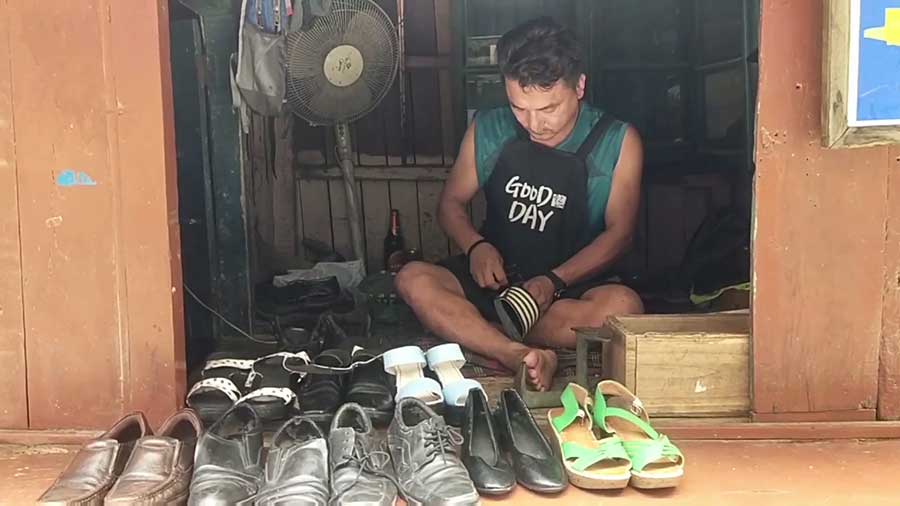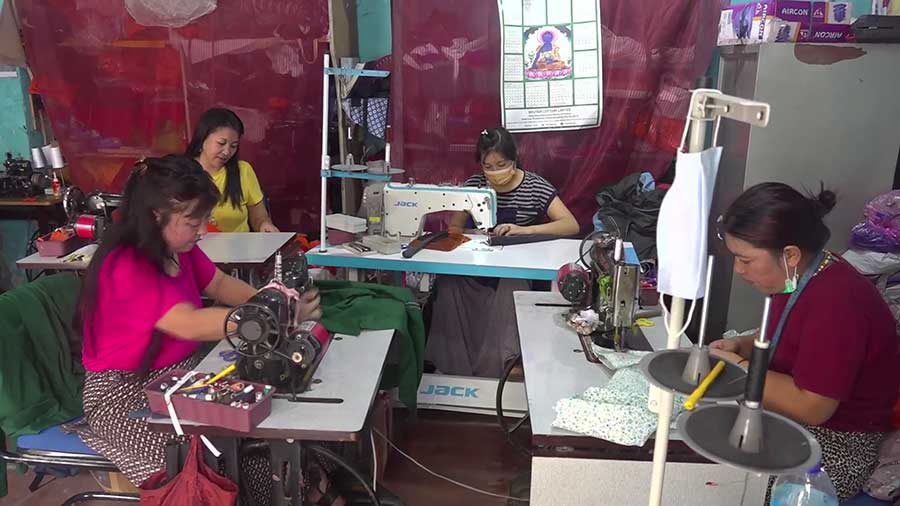
The coronavirus crisis has posed many challenges, which Bhutan never faced before. However, it has taught the country many lessons including the importance of being self-reliant. In Samdrup Jongkhar, a small shoe repairing business is making ends meet. Such was not an established business idea, especially for a Bhutanese, prior to the pandemic.
Kelzang Jigme, 42, opened a cobbler shop in Dewathang almost eight months ago. He moved his business to the core town area of Samdrup Jongkhar two months ago. The idea to open the first-ever cobbler shop in the town crossed his mind after the closure of border gates in March 2020.
He said the pandemic has made him realise that it is very critical to be self-reliant for basic needs.
Today, Kelzang Jigme’s shoe repairing shop is earning him a decent income.
“After the border gates were closed, people couldn’t visit the nearby Indian bordering towns to repair their shoes. So, I seized the opportunity and opened a cobbler shop. Today, a good number of customers visit my shop and I earn Nu 2,000 to 3,000 a day. From the start of the business until now, I earned an income of Nu 200,000,” he added.
Regardless of running a lone shoe repairing business in the town, he seeks mutual benefits, which are customer service satisfaction and good income generation.
 Such a similar impact is seen in the tailoring business there. The business, which was once dominated by Indian tailors is now replaced by Bhutanese tailors.
Such a similar impact is seen in the tailoring business there. The business, which was once dominated by Indian tailors is now replaced by Bhutanese tailors.
There are 20 Bhutanese workers in all five tailoring shops in the town. They are also earning a pretty good income to support their families.
“All Indians, who were running tailoring shops returned to their homes during the pandemic. Then we received a good opportunity to learn everything about tailoring and then landed a job at a tailor shop,” said one of the tailors, Pema Tshomo.
Her viewpoints were echoed by some other tailors.
“It is the right time to cash in. Our Indian friends have left for their hometowns. Then to continue the services, we got into their shoes. Apart from improving our lives, it has a positive impact on our currency reserves,” shared another tailor, Pema Wangmo.
However, their economic concerns loom as border gates reopen for tourists this September.
But that has not dampened their spirit for they are hoping to retain their customers by offering them affordable and quality services.
Samdrup Jongkhar Thromde, a commercial hub of eastern Bhutan has been bustling with commercial activities until COVID reversed the situation.
Being one of the border districts, Samdrup Jongkhar has been one of the hardest-hit places in the country by the global coronavirus pandemic.
Nonetheless, the increased mobility following the implementation of the phase-II national COVID management has given renewed hopes to the district to improve its faltering economy.
Kinley Wangchuck, Samdrup Jongkhar
Edited by Pema Lhaden








